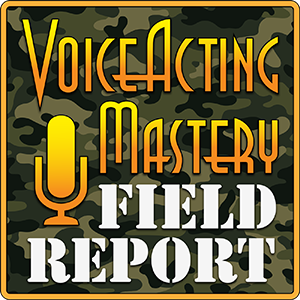VAMFR 028 | Interview with Erica Mendez, Part 2

VAMFR 028 | Interview with Erica Mendez, Part 2
Welcome to episode 28 of the Voice Acting Mastery: Field Report podcast!
You can listen to the podcast using the player above, or download the mp3 using the link at the bottom of this blog post. The podcast is also available via the iTunes Store online. Just follow this link to view the podcast in iTunes:
http://www.vamfieldreport.com/podcast
This episode is the second part of Tom Bauer’s interview with his good friend and rising talent in the voice over industry, Erica Mendez.
Erica is probably most famous for her voice acting work in anime, taking on such roles as Gon Freecs in the 2011 anime series adaptation of Hunter X Hunter, Sailor Uranus in the Viz Media English dub of Sailor Moon and Ryuko Matoi in the popular Kill la Kill anime television series. If that wasn’t enough, Erica has also started work as an ADR script writer for the Netflix original anime series, Fate/Apocrypha.
When we last left off, Erica was discussing how she made the decision to move from her hometown of Chicago to Los Angeles to pursue her creative endeavors. While she initially intended to move to LA to become a professional animator, her previous experiences performing in online audio dramas opened a new world of opportunity for her in the area of voice acting. When she arrived in LA, a series of fortunate circumstances lined up to give her the chance to audition for voice acting jobs.
In this episode, Erica talks about some of the challenges she faced while pursuing her new voice acting career. She shares her insight into what it takes to stay competitive in voice over, as well as some of the acting techniques she’s adopted while taking classes and how she implements what she’s learned in the booth. We start this episode by delving into her process of developing characters for anime.
The VAM Field Report will be released on the 1st Wednesday of every month so stay on the look out for it!
Download VAM Field Report Episode #28 Here (MP3)

I have a question…
You have recommended in the past that having singing training will be beneficial in this field. I find that I can barely sing through a song without my voice hurting, no matter what pitch I’m in. Are there any “at home” training exercises that people can try to get past this?
Thanks,